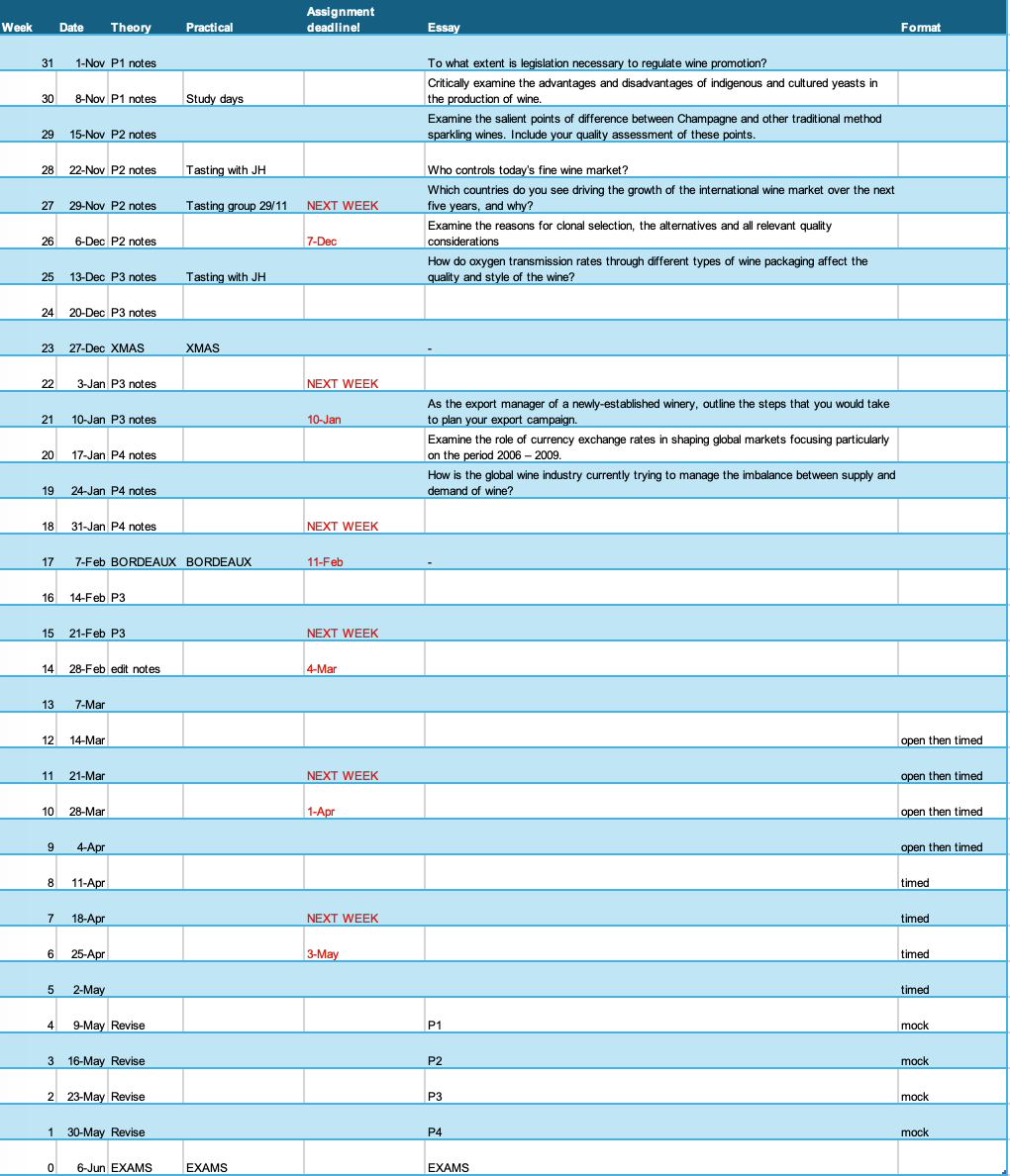#MWStudyBuddy EXTRA: timetable tips for the academic year
It's a marathon AND a sprint.
There are nine months between the start of the academic year and the MW exams in early June. This amount of time seems simultaneously insufficient to gather and manage such a huge amount of information (the marathon) yet still allowing plenty of run-up to the exam itself (the sprint).
Practical: making the most of MW seminars and course days
Seminars and course days are your prime opportunities throughout the academic year to undergo practical papers in exam conditions. There are usually at least four full-length 12-wine papers available, and it’s worth taking full advantage.
Your approach depends on which stage you are in and how close you are to to the exam. They are a golden opportunity to develop exam technique: your systems for timing, note-taking (eg grid), writing (typed or hand-written), glassware and any other variables.
In stage one, you can use these opportunities to experiment with new techniques. For example, you might want to try new glassware, or change your timing approach. If it goes wrong, you might end up wasting the paper - but it’s better to do that on a course day than in the exam room itself.
If you are in stage two, then at the seminar your techniques should ideally allow you to reliably finish every paper every time (which also means writing full answers even when you’re unsure of the wines). Not only does that give you all-important peace of mind, but it allows self-assessment: if you don’t complete a paper, you won’t know what your final score could have been.
Of course, there are lots of other ways to prepare for the practical, but seminars and course days give you invaluable targets throughout the academic year.
Theory: accumulation, consolidation, revision
Studying for the theory exams is usually best done alongside practical preparation, not least because there is useful crossover both in knowledge and in communication techniques.
There are many different ways to study for a theory exam. I spent half the academic year gathering information across all topics and dropping it into folders on my laptop. This could be anything from seminar slides to website links to webinar recordings to notes from field visits. The next few months was spent consolidating all that information: double-checking, streamlining and organising everything so that it was as concise and as useful as possible.
Then, in the four weeks before the exam, it was pure revision: strictly no new knowledge, but memorising all my notes and practicing how to apply that knowledge by answering questions from past papers, including staging full-length mock exams at home.
Having those three distinct phases and planning my studies week-by-week gave me a clear framework.
Surviving MW study
This article is a selective overview of how you might plan your studies, and there’s no one-size-fits-all solution. MW studies can easily become overwhelming, so scheduling when to study and when not to can help you survive the whole process.
It’s rare that athletes are good at both sprinting and marathon running, but that’s not a bad analogy for what it takes to become an MW. Feeling overwhelmed is normal, but planning your study timetable for the academic year is one way to make things more manageable.




Could you explain a little more clearly how your table is structured? During the week where you mention, for example, “P2 notes”, and then refer to the essay afterwards — does that mean you are taking notes in preparation for that essay, or that you are actually writing the essay, having already taken the notes earlier?
Regarding the scheduling of the practical part, I see very little mentioned. Does that mean you only did tastings in the weeks indicated? Didn’t you have specific topics to study and taste each week?